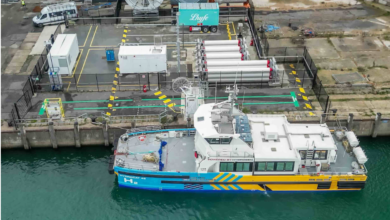Poseidon Marine H2 opens to investors
The funds will be used to finance the project’s feasibility study to develop a hydrogen-powered boat which they expect to have in the water by Q3: 2023.

Poseidon Marine H2 has opened to investors via the online trading platform VCEX to finance its feasibility study to develop a hydrogen-powered boat.
Its team of engineers is seeking to raise the initial capital of A$410,000 to fund the project’s feasibility study to develop a hydrogen-powered boat which they expect to have in the water by the third quarter of 2023.
The company says overall, they are building a better boat that just happens to be powered by hydrogen.
Poseidon Marine H2 Director and Principal Engineer Peter Mastalirm said, “Our mission is to construct one of the world’s first hydrogen-powered boats in the next 18 months that will meet the rapidly growing demand for technology that will decarbonise the maritime industry.”
“We believe we will achieve this by focusing on building a better boat that has an equivalent operational range, requires less maintenance and is cheaper to run than traditional fuel sources like diesel.”
The team intends to leverage existing technologies as much as possible, so they are looking to use a current hull design with a unique upper deck and internal layout.
The company says they will be targeting the new motor yacht market, which has a projected market size of US$11.05b, with Europe making up 35% of the sector (US$3.87b).
It sees a substantial market opportunity in Europe. By 2030, the new motor yacht industry in Europe will be worth US$5b, meaning there will be a large technology vacuum across the entire sector.
Poseidon H2 plans to provide the European market with the technology needed to ensure their 2030 transition is successful and can be sustained.
Their technology partner, Dynamic Efficiency, has direct connections with a marine engineering company at the Gold Coast City Marina and an extensive list of relationships with major industry players and universities, which will prove critical to executing the project.
The company will also ensure its technology has diesel applications to provide the market with a transitional option. This means the company can leverage current fuel sources while future-proofing the boat for conversion later to hydrogen when the fuelling infrastructure is adequate.
